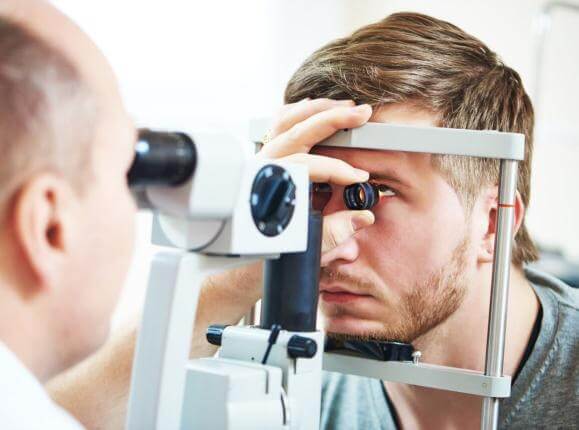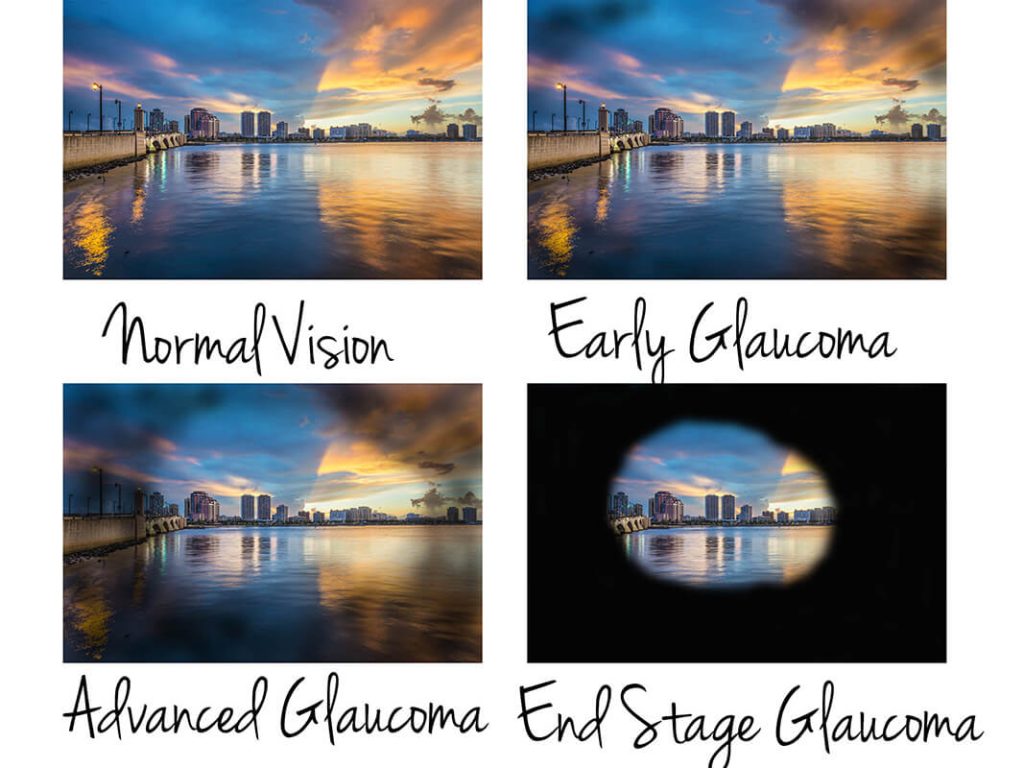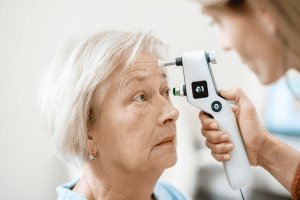World Glaucoma Week – March 12-18

It’s Glaucoma Week, and we’re here to raise awareness about this serious eye disease so you can avoid it or if you already have it, manage it properly.
Glaucoma: The Basics
Glaucoma is a type of eye disease that affects the eye’s optic nerve. As the optic nerve becomes damaged, your vision is affected. Unfortunately, glaucoma can cause partial or total blindness in the long run.
Blindness due to glaucoma is progressive. It starts in the peripheral vision, then gradually closes in on the central entire vision until it causes irreversible tunnel vision.
Everyone is at risk of developing glaucoma at some point in their life, but this disease is more prevalent in people aged 55 and over.
What Causes Glaucoma?
Glaucoma develops when the pressure of the fluid in the front part of the eye called aqueous humor is too high for the optic nerve to manage. This excessive pressure damages the optic nerve, resulting in gradual loss of vision as the disease progresses. Think of your eye like a balloon being filled with air. Pump the right amount of air into the balloon, and you’ll be fine. Pumping too much air into the balloon can put excessive pressure on it, and sooner or later, it will pop.
What causes excessive fluid pressure in the eye? Unfortunately, this is still very much a mystery to researchers and doctors. Sometimes it can be caused by blockages in the drainage channels in your eyes or too much aqueous humour being produced.
How Can You Tell if You Have Glaucoma?
Early stages of glaucoma commonly do not have symptoms of this disease. In fact, half of patients afflicted with glaucoma do not even realise that they have it. Their vision still seems perfectly fine until the first signs show up. Symptoms depend on the type of glaucoma the patient has, as well as the stage of the disease.
So what are the different types of glaucoma, and what are their symptoms?

The first one is childhood glaucoma. Infants with glaucoma often have clouded or dull eyes. They blink incessantly and parents or caregivers will see tears in the child’s eyes even when they are not distressed or crying. Older kids typically have blurred vision and nearsightedness. They may also complain of headaches.
Secondary glaucoma is a type of glaucoma caused by pre-existing conditions, such as elevated blood pressure or diabetes. It can also be caused by infection or injury to the eye.
People with open-angle glaucoma typically don’t experience symptoms during the early phases of the disease. As the disease progresses, black spots gradually appear in their peripheral vision. Advanced open-angle glaucoma is characterised by significant loss of vision.
Patients with acute angle closure glaucoma often suffer from headaches and eye aches on top of poor vision. Many also experience nausea, as well as see haloes when they gaze at lights directly.
There are cases when the optic nerve gets damaged even when the eye doesn’t experience excessive pressure. This is called normal tension glaucoma. Patients commonly do not have any symptoms during the early phase of this disease but report that their vision progressively gets worse as time goes by.
Who is at Risk?


People over 40 and those whose families have a history of glaucoma are especially at risk of developing this disease. In fact, people who have extended families afflicted with glaucoma are ten times more likely to develop this disease.
Patients with pre-existing eye conditions, such as far-sightedness and near-sightedness, are also most likely to develop glaucoma. The same goes for people with pre-existing conditions, such as high blood pressure or diabetes.
It's Glaucoma Week — It's Time to Get Your Eyes Checked
Have you been seeing black spots in your peripheral vision lately? Have you started bumping into things when you walk around or seem to need to turn your head more when driving? Are you experiencing nauseating headaches and/or blurry vision? If you answered yes to any of these questions it’s time to head to your eye health professional and have your eyes checked for glaucoma or any eye condition.
The good news is glaucoma can be treated and managed as long as it is diagnosed early. This Glaucoma Week, visit Vision Eye Health stores to ensure that your eyes are healthy for longer.
